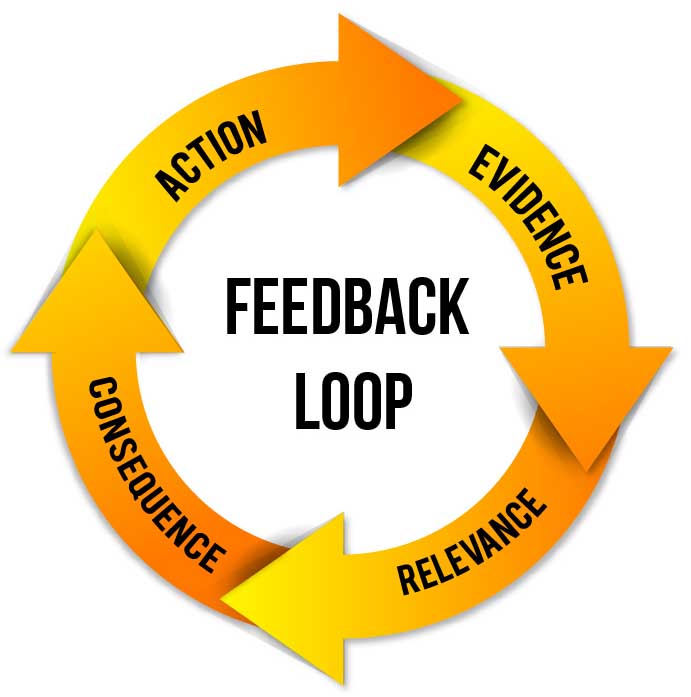
The importance of open and honest communication between employees and managers is something we stress a lot in the employee recognition industry. For a variety of reasons, this is done. In terms of employee satisfaction, the relationship between the employee and the manager is consistently ranked as one of the most important factors. 70 percent of the variation in employee engagement can be attributed to managers alone, according to a Gallup study.
Another reason to encourage regular, authentic communication is the establishment of positive feedback loops, which are essential to the success of any reciprocal relationship. When people are given timely feedback about their actions without fear of retribution, they have a healthy opportunity to work on improving their behavior. This is a fundamental concept in psychology and the science behind it is straightforward.
- Emotional Intelligence
- Taking the Temperature
- A Flexible Plan for Adaptation
- Creating a Network of Positive Reactions
Emotional Intelligence
When an employee withholds information for fear of losing their job, their reputation, or a mutually beneficial relationship, this tension does not go away on its own. In the absence of constructive, nonjudgmental methods of interacting with employees, tensions will inevitably find other outlets, such as gossip, sabotage, emotional withdrawal, or even outright anger.
To a greater or lesser extent, managers on the front lines, who spend the majority of their time interacting with those on the front lines, are responsible for ensuring that feedback loops remain open. Establishing a good working relationship with your coworkers is an important part of any manager’s training in emotional intelligence.
Taking the Temperature
Relationships become more resilient to change and adversity when they have strong feedback loops. Heating, ventilation, and air conditioning (HVAC) systems have thermostats that constantly monitor room temperature and adjust their settings in small steps to maintain the desired temperature. Regardless of the weather outside, the temperature inside the house remains constant and pleasant. Temperature changes are observed and responded to by the thermostat, which does not inquire about why.
For healthy relationships, we all need to balance our communication in this way. No matter how many people say otherwise, it doesn’t mean there is nothing wrong. This cycle must be nurtured and maintained consciously. Healthy communication is impossible if we are afraid to speak out of fear of saying the wrong thing.
A Flexible Plan for Adaptation
When it comes to encouraging behavior change, positive feedback loops are far more effective than commands or reprimands. Observe the large digital readouts on the road that indicate whether you are speeding. Using these devices reduces traffic speeds by four to nine miles per hour on average, which can mean the difference between a fatality and a nonfatal accident, as discovered by researchers at Texas A&M.
In most cases, enforcing the law isn’t very effective. Not only does it slow down traffic, but it also allows other speeders to slip through the cracks unnoticed. When drivers receive immediate praise for their actions, it becomes easier for them to change their behavior. The goal of providing constructive criticism is to let people make their own choices without being swayed.
Creating a Network of Positive Reactions
You can use these tips every day to ensure that you’re building authentic and healthy positive feedback loops in your relationships.
- In order for people to care about what you know, they need to feel safe. It’s important to let people know up front that talking to you will be free of bias and judgment.
- Take time to listen before you speak. People may be struggling or just needing to vent, so it’s worth taking the time to listen before you speak. Before you do anything, make sure you know everything there is to know about the situation.
- Feedback should be given in person. Authentic feedback must be given from the heart. The truth can be distorted by pre-written emails and text messages, no matter how convenient they are. It’s important to spend time with those you care about, whether in person or on the phone.
- The fourth step is to control your emotions. It’s normal to feel a range of emotions. Keeping your rational and emotional selves separate improves your mental fortitude and allows you to be more present with others.
It’s all about helping people learn how to establish and maintain healthy relationships. It is essential not to get discouraged because this work is difficult for the majority of people. The same level of consideration for yourself should be applied to others. Coercion is not an option when it comes to authenticity and honesty. They are always the result of a feedback loop that is both safe and nurturing, both on the inside and the outside.
